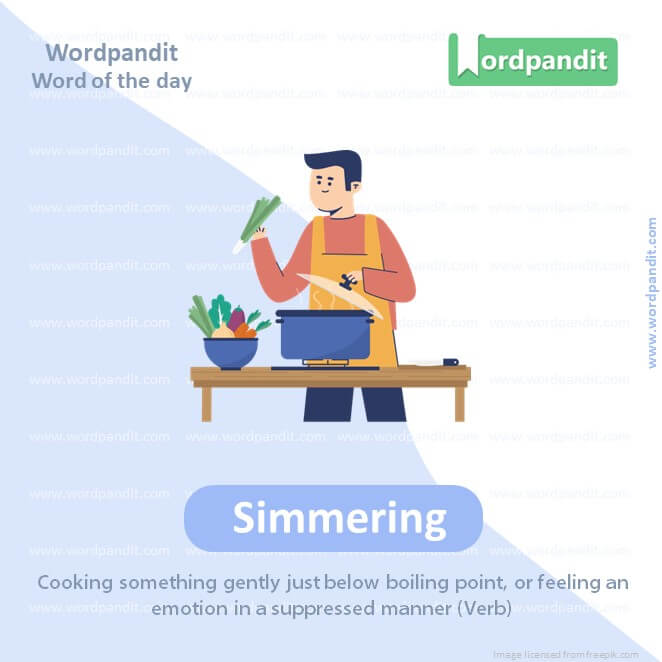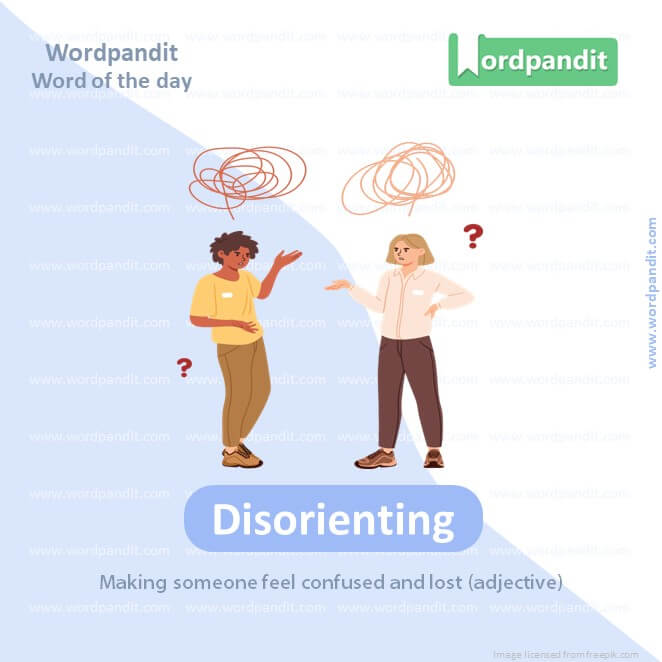Daily Vocabulary Words: List of Daily Used Words in Leading International Newspapers
Hi there. Welcome to this special section @ Wordpandit.
Our endeavour here is very simple: to highlight important daily vocabulary words, which you would come across in leading newspapers in the country. We have included the following newspapers in our selection:
• The New York Times
• The Washington Post
• Scientific American
• BBC
• The Guardian
• Psychology Today
• Wall Street Journal
• The Economist
We are putting in extensive work for developing your vocabulary. All you have got to do is be regular with this section and check out this post on a daily basis. This is your repository of words that are commonly used and essentially, we are posting a list of daily used words. Hence, this has significant practical application as it teaches you words that are used commonly in leading publications mentioned above.
Visit the website daily to learn words from leading international newspapers.
WORD-1: Subversion
CONTEXT: the same political ilk for why the long-term costs of such subversion of the Constitution outweigh the short-term benefits.
SOURCE: New York Times
EXPLANATORY PARAGRAPH: Think about when you’re playing a game and someone secretly tries to change the rules so they can win without others noticing. That’s like “subversion.” It’s when someone tries to sneakily change or mess up something important that usually helps everyone follow the rules.
MEANING: The act of secretly trying to ruin or change something important (noun).
PRONUNCIATION: suhb-VUR-zhuhn
SYNONYMS: undermining, sabotage, disruption, overthrow, subterfuge
USAGE EXAMPLES:
1. The story was about a spy involved in the subversion of the government.
2. Subversion of the law can lead to chaos and disorder.
3. They discussed the potential subversion of the team’s efforts.
4. Preventing subversion is important for maintaining stability.

WORD-2: Simmering
CONTEXT: The most recent escalation in the simmering feud between federal officials and Mr. Abbott over the state’s border measures came into greater public view after three migrants drowned in the Rio Grande by Eagle Pass.
SOURCE: New York Times
EXPLANATORY PARAGRAPH: Imagine when you’re making soup, and the water starts to bubble a little but not too much, that’s called “simmering.” It’s when you cook something gently, and it’s just starting to get hot and steamy.
MEANING: Cooking something gently just below boiling point, or feeling an emotion in a suppressed manner (Verb).
PRONUNCIATION: SIM-er-ing
SYNONYMS: stewing, brewing, seething, heating, bubbling
USAGE EXAMPLES:
1. The soup was simmering on the stove.
2. He left the vegetables simmering in the pot.
3. The conflict had been simmering for a long time before it erupted.
4. She kept her anger simmering below the surface.

WORD-3: Encoding
CONTEXT: the express purpose of encoding white supremacy into the state’s DNA.
SOURCE: New York Times
EXPLANATORY PARAGRAPH: Imagine when you write a secret message using a special code that only your friend knows. That’s like “encoding.” It’s when you change normal words or information into a special secret form so only certain people can understand it.
MEANING: Converting information into a coded form for secure transmission or
storage (Noun/Verb).
PRONUNCIATION: en-KOH-ding
SYNONYMS: encrypting, ciphering, coding, scrambling, concealing
USAGE EXAMPLES:
1. The computer is encoding the file for secure transmission.
2. He learned about encoding messages in his computer class.
3. Encoding data helps protect it from hackers.
4. The software was responsible for encoding the video.
WORD-4: Miserably
CONTEXT: It’s a stress test for a potential constitutional crisis — and we’re all failing miserably.
SOURCE: New York Times
EXPLANATORY PARAGRAPH: Imagine you wanted to go outside to play but it’s raining hard and you can’t, making you feel really sad and disappointed. That’s feeling “miserably.” It means you’re very unhappy about something.
MEANING: In a very unhappy, uncomfortable, or disappointing manner (adverb).
PRONUNCIATION: MIZ-er-uh-blee
SYNONYMS: woefully, sadly, drearily, wretchedly, poorly
USAGE EXAMPLES:
1. He failed the test miserably.
2. The weather was miserably cold and wet.
3. She felt miserably alone in the new school.
4. The team played miserably in the final game.
WORD-5: Effusive
CONTEXT: one that’s purposely less effusive than the one you posted for your other friend.
SOURCE: New York Times
EXPLANATORY PARAGRAPH: Imagine your friend gave you the best birthday gift and you couldn’t stop thanking them and telling them how awesome it is. That’s being “effusive.” It’s when you show your feelings a lot, especially happiness or thanks.
MEANING: Expressing feelings of gratitude, pleasure, or approval in an unrestrained or heartfelt manner (adjective).
PRONUNCIATION: ih-FYOO-siv
SYNONYMS: gushing, overflowing, enthusiastic, exuberant, lavish
USAGE EXAMPLES:
1. She was effusive in her praise for the winning team.
2. His effusive welcome made us feel very special.
3. The review was effusive about the new movie.
4. She responded to the compliment with an effusive smile.
WORD-6: Ruminating
CONTEXT: in Maryland, explained how a former friend would use their text chats as a way to constantly shift from hot to cold — acting friendly at school, then leaving her texts unanswered, then texting all night in minute-to-minute flurries, then ghosting her for days on end, leaving her on her phone and in her feelings, ruminating (something girls are more prone to) on the unanswered messages.
SOURCE: New York Times
EXPLANATORY PARAGRAPH: Imagine you’re thinking over and over about the game you played yesterday, trying to figure out how you could have won. That’s called “ruminating.” It’s when you keep thinking about something again and again, usually something that bothers you or makes you curious.
MEANING: The act of thinking deeply or repeatedly about something, often in a worried or sad way (verb).
PRONUNCIATION: ROO-muh-nay-ting
SYNONYMS: pondering, contemplating, musing, brooding, deliberating
USAGE EXAMPLES:
1. She spent the evening ruminating on her life choices.
2. He was ruminating over the words of his teacher.
3. Ruminating too much can make you feel sadder.
4. The poet was known for ruminating on nature and existence.

WORD-7: Disorienting
CONTEXT: I believe that the whiplash from these events has been particularly disorienting and enraging for younger Americans, for whom this may be their first experience of such a backlash.
SOURCE: New York Times
EXPLANATORY PARAGRAPH: Imagine spinning around really fast and then stopping; you might feel confused and not know which way is up or down. That’s feeling “disorienting.” It’s when something makes you feel very confused and not sure where you are or what’s happening.
MEANING: Making someone feel confused and lost (adjective).
PRONUNCIATION: dis-OHR-ee-en-ting
SYNONYMS: confusing, bewildering, perplexing, baffling, unsettling
USAGE EXAMPLES:
1. The maze was disorienting with its many twists and turns.
2. She found the new city disorienting at first.
3. The flickering lights were disorienting during the blackout.
4. After the accident, he felt disorienting for a few moments.
WORD-8: Covenants
CONTEXT: The Color of Law: A Forgotten History of How Our Government Segregated America” — restrictive covenants, the practice of putting clauses in deeds to forbid the selling or renting of real estate to Black people, spread across the country.
SOURCE: New York Times
EXPLANATORY PARAGRAPH: Think of when you make a pinky promise with your friend to share your snacks. That promise is like a “covenant.” It’s a very important agreement or promise that people make to do or not do something.
MEANING: Formal agreements or promises between two or more parties, especially those enforced by law (noun).
PRONUNCIATION: KUH-vuh-nuhnts
SYNONYMS: agreements, contracts, commitments, pacts, bonds
USAGE EXAMPLES:
1. The two countries entered into a covenant of peace.
2. They had a covenant that neither would sell the land.
3. The covenant was broken, leading to legal action.
4. Environmental covenants help protect natural areas.

WORD-9: Intimidation
CONTEXT: the Mississippi Plan in advance of the state’s 1875 elections to use fraud and the intimidation of Black voters, including through violence, to retake state power from progressives.
SOURCE: New York Times
EXPLANATORY PARAGRAPH: Imagine if a bigger kid at school tries to scare you into giving them your lunch money. That’s called “intimidation.” It’s when someone tries to frighten you into doing something you don’t want to do.
MEANING: The act of frightening someone to make them do what you want
(noun).
PRONUNCIATION: in-tim-ih-DAY-shun
SYNONYMS: bullying, threatening, coercion, terrorizing, menacing
USAGE EXAMPLES:
1. Intimidation should never be used to resolve conflicts.
2. The bully’s intimidation tactics were reported to the teacher.
3. She faced intimidation from her competitors.
4. The use of intimidation in the interrogation raised ethical questions.

WORD-10: Stinging
CONTEXT: Passive aggression isn’t just “No offense, but” before delivering a stinging insult.
SOURCE: New York Times
EXPLANATORY PARAGRAPH: Imagine when you accidentally touch a nettle plant, and it makes your skin hurt and feel like it’s burning. That’s “stinging.” It’s when something causes a sharp, burning pain, just like a bee sting.
MEANING: Causing a sharp, sudden pain or discomfort, often like the feeling of
being pricked by a sharp object (Adjective/Verb).
PRONUNCIATION: STING-ing
SYNONYMS: biting, sharp, smarting, burning, piercing
USAGE EXAMPLES:
1. The stinging cold made everyone bundle up.
2. He felt a stinging sensation after the insect bite.
3. Her eyes were watering from the stinging smoke.
4. The stinging remark left her feeling hurt.
Vocabulary Words with Meaning
Penetrating the rich tapestry of language, the essence of ‘vocabulary words with meaning’ is a crucial aspect. It’s these seeds of knowledge that bud into fluent conversations and comprehensive understanding. The knack of grasping ‘vocabulary words with meaning’ is pivotal in language learning, but it demands a nuanced approach and strategy.
Learning ‘vocabulary words with meaning’ isn’t about mechanically memorizing heaps of words. It’s about building connections and creating a profound understanding of these words. A promising approach to assimilate ‘vocabulary words with meaning’ involves utilizing a wide range of resources including literature, films, music, and digital content. This immersion provides a broad context and diverse settings for these words, simplifying their comprehension and use.
When you’re focusing on ‘vocabulary words with meaning’, remember to incorporate memory-enhancing techniques into your learning regimen. Tools like flashcards or recall-based applications can aid significantly in long-term retention of these words. Additionally, mnemonic strategies, associating words with distinctive images or stories enhance memory recall and understanding.
The journey of mastering ‘vocabulary words with meaning’ also benefits greatly from practice and application. Engage in conversations using the language, express your thoughts in writing, and try to incorporate newly learned words into your routine. This not only enhances your familiarity with the words but also aids in an intimate understanding of their connotations and denotations.
To sum up, learning ‘vocabulary words with meaning’ is akin to assembling a jigsaw puzzle: it requires patience, strategy, and persistence. But the picture that finally emerges is a beautiful tapestry of language – vivid, articulate, and expressive. So, set your sails toward the voyage of ‘vocabulary words with meaning’, and discover the joy of speaking and understanding a language with finesse.













